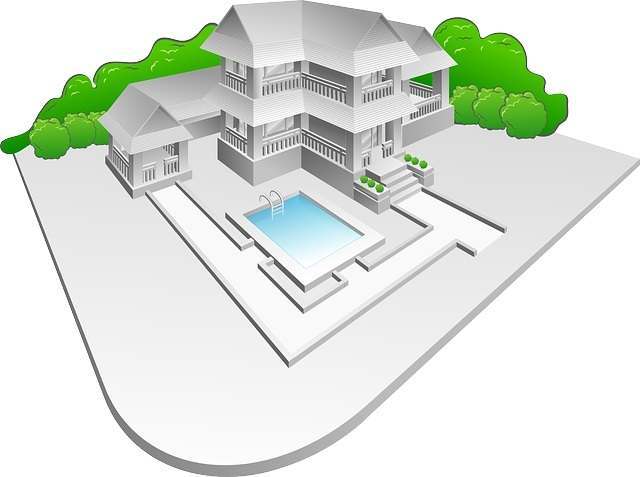5 Clever Tricks to Reduce the Interest Burden on your Home Loan
For a majority of individuals, the home loan with monthly payment forms a major chunk of their monthly expenditure. Even after weighing tones of different options and zeroing in on the one most economical deal, many people end up with mortgage repayments that are much higher than they initially expected, resulting in excessive financial burden on them. Let us have a look at a few smart ways in which you can significantly cut down upon the interest portion of the liability on your home loan.
Go for a Shorter Tenure
Given the hefty repayment amount, most people prefer to go for a longer tenure of mortgage repayment to lower their EMI liability every month. However, longer repayment tenure of the home loan would mean more absolute interest payout liability on the applicant. Since the interest payable is calculated on the outstanding balance of the principal amount, rapid repayment of the principal in case of a shorter tenure implies lower interest payout.

Consider Refinancing Your Mortgage
An effective strategy, for significantly reducing the long term expenditure on your interest repayment, is refinancing the outstanding amount of your mortgage. By opting for a lower interest rate on the re-financed home loan, you can obtain massive savings over a period of time. However, while going for a refinancing of your home loan, you must consider several major influential factors such as legal charges, pre-payment penalties or any other charges imposed by your initial creditor, in order to eliminate any scope of doubt in the new agreement.
Learn More About Home Loans in different states.
Repay Additional Principal Amount
Since the interest component on your mortgage is calculated on the basis of the outstanding principal amount of the loan, it is a good idea to repay your principal component as early as you can. For this purpose you can either choose to repay surplus EMI every month, or pay an extra month's installment in addition to the original repayment schedule every year. This not only ensures that your principal amount is paid off earlier than stipulated, but also reduces the interest amount liability on you.
Increase Your Annual EMI
By increasing the amount of repayment that you make annually in the form of scheduled EMIs, you can significantly reduce the time required to repay the loan by up to half of the loan tenure. For example, if you align your annual bonuses or salary hikes with your loan repayment schedule and increase your annual EMI by say 5%, you will be able to eliminate the principal component soon enough to have a significantly lighter interest liability.
Amend Your Loan
If for some reason you are unable to repay your monthly installment loan or are dealing with a financial crisis that is causing regular late payments for your mortgage, you might be qualified for a modification of your loan terms and conditions under various programs. Depending upon the stipulated clauses of the programs, an individual might be eligible for interest rate reduction, lower EMI, tenure extension and so on.
All That You Need to Secure a Mortgage Today
Most of us don't have the money to afford a home right away. So, what's the next best solution? Well, a mortgage of course. However, getting a mortgage isn't too easy, especially if your finances are not in order. SO, if you're planning on applying for one, here's everything you need to know and need to do.

Credit History/Credit Scores
Your credit scores are extremely important when determining your chances of qualifying for a mortgage. Sadly, this is something many people aren't even aware of. Lenders go through an applicant's credit history in order to determine an applicant's chance of affording the mortgage. To put it simply, your lender needs to know if you can pay back on time and your credit scores provide the lender with a clear picture. Your credit scores are assessed via your credit history. Your credit history will point out important details such as how long you've taken to pay back old loans or whether you've maxed out your credit card often.
The credit scores for a mortgage eligibility range from 350, being the lowest, to 850, being the highest. Anything above 740 is considered great and anything below 600 is considered poor. A high credit score can bring down interest rates significantly, even though the general qualifying score is 620. To put it simply, a qualifying score might get you the mortgage, but, you'll likely have to pay a very high interest rate. So, hopefully, you have a score that's over 740. Other important details in your credit history that are likely to be looked at include duration of open accounts, pending judgments or collections, and delayed payments etc. If there are delayed payments or pending collections/judgments, you're chances of landing a mortgage drop down significantly.
Mortgage Loan Documentation
Your lenders will require a range of documents, which will be used to vet you for the mortgage. These documents will also be used for evidential purposes. So, make sure you have all your tax returns and bank statements ready. You might have to provide several years of information. Lenders might also require information on large deposit sources. For example, if you plan to use some ancestral wealth as down payment on the mortgage, make sure you have the documentation to prove the money is legally yours. If someone's given you a gift for the down payment, make sure they provide a written and attested letter stating that. You will also need paycheck stubs; at least from a month ago, which is the standard requirement to verify income. For those who are paid electronically, paycheck stubs can be printed from the employer's website. If that's not available, talk to Human Resources.
5 Ways in Which Refinancing Your Mortgage Might Be Advantageous
It is always advisable to have a clear understanding of your financial health and long term objectives to avoid getting burdened with excessive debt that is difficult to repay. When you take out a home loan, you are basically making a long term commitment with the lender that primarily entails making your payments on time. Depending upon their financial situation and requirements, many people decide to refinance their mortgage. Let's have a look at the ways in which refinancing your mortgage can actually be pretty beneficial for you.
Lower Your Monthly Payments
When you decide to refinance your mortgage you can go for a loan product that offers you a lower rate of interest. This implies that you can significantly lower your monthly repayment liability and use the extra money to make more lucrative investments that will offer you better returns.

Reduce the Total Interest Payout
By refinancing your mortgage at a lower interest rate, you can save thousands and even tens of thousands of dollars on the total interest payout by the end of the loan tenure. While the interest reduction might not seem substantial as of now, it is surely going to have an impressive cumulative effect in the long run. Change the plan type Most homeowners get lured into going for an adjustable rate mortgage given the fact that they start out at more competent interest rates in the beginning. However as the market rates spike, you might have to start shelling out major bucks without any prior warning. Refinancing your mortgage with a fixed rate loan product, will not only ensure that you enjoy maximum payment stability, but also help you in keeping up with your monthly installments without experiencing any additional financial burden.
Modify the Loan Tenure
For people who have an existing 30 year mortgage, refinancing to a shorter tenure of say 15 years is a fairly good idea. When you make a analytical scrutiny of the two products, you would realize that you will not only be able to repay your debt sooner, but also have to pay only a little more towards the interest portion for the loan type of a shorter term.
Cash Out On Your Home Equity
The best part about refinancing your mortgage is that you stand the chance of cashing out on the equity on your home. You can avail a line of credit depending upon the amount that you have already repaid in lieu of your mortgage and the monetary worth of your property. You may use the funds for a variety of purposes such as starting a business, buying a new property, home renovation or paying for the tuition fee.
